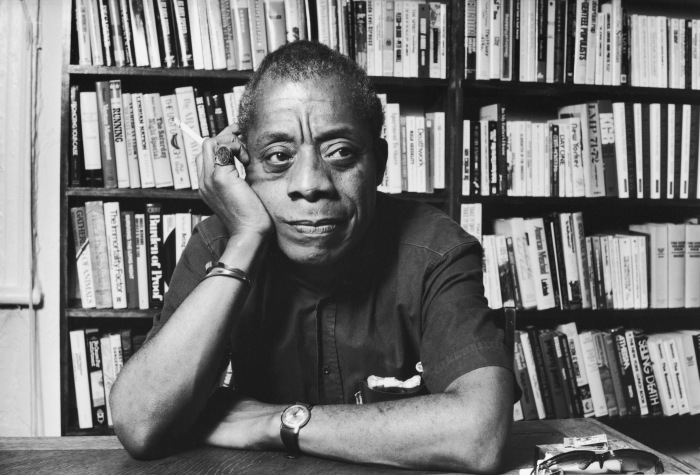
I just finished watching I Am Not Your Negro, Raoul Peck’s remarkable documentary about James Baldwin. It’s a poem about America, but not the apple pie and Doris Day version. It’s difficult and maddening. It’s fearful and violent. It’s the America we don’t like to talk about because it makes us uncomfortable.
The film does an extraordinary job of interweaving Baldwin’s interviews and writing with present day events, such as Ferguson and the seemingly endless series of murders of innocent Black men and women by the people who are supposed be protecting us, all of us. Has nothing really changed? Are we still living in the bigoted world of 1963? This film forces us to think about these powerful and challenging questions.
My main connection with James Baldwin is through his writing, especially his 1956 novel Giovanni’s Room. I’m not sure I’ve read anything like it, especially given the era Baldwin composed it. In I Am Not Your Negro, Baldwin talks about how he felt compelled to return to America to participate in the Civil Rights movement. Imagine how brave that was; Baldwin was a gay, Black expatriate in the 1960s. He had everything to lose by returning to the US at that time. Yet, he returned.
As an American raised way past Civil Rights, it’s sometimes easy to forget how charged and dangerous that time was. The film also makes it clear that our times pose a significant and heartbreaking threat as well; it shows how far we haven’t come. I feel utterly uninformed for admitting this, but I had no idea that James Baldwin had relationships with Malcolm X, Medgar Evers, and Martin Luther King, Jr. Well, I guess that’s why we watch documentaries, so we can learn more about the world and expand our knowledge. Peck shows how these men influenced each other, but also, and I think more significantly, how they were different.
I recently read The Autobiography of Malcom X, which was a glaring hole in my personal reading library. In that book and in this documentary, it’s clear the differences between the non-violence of King and the aggressive action of Malcolm. I think that we forget that the Civil Rights movement wasn’t just one thing—there were a plethora of viewpoints and approaches. I think that Peck manages to highlight the humanity of both men in such a way that we see them not only as beacons of justice, advocacy, and strength, but also as human beings who were living in their times. By transcending their symbolism, the film makes a deep emotional impact because we see them as friends of our main character, and their loss feels new once again.
Is that what Peck is intending, that we feel this sadness and even hopelessness, and it sparks us to change? By holding up a mirror to how things really were (and are), he’s challenging us to be better, or at least to stop pretending that everything is okay. It’s not, and now maybe we have a place to start.